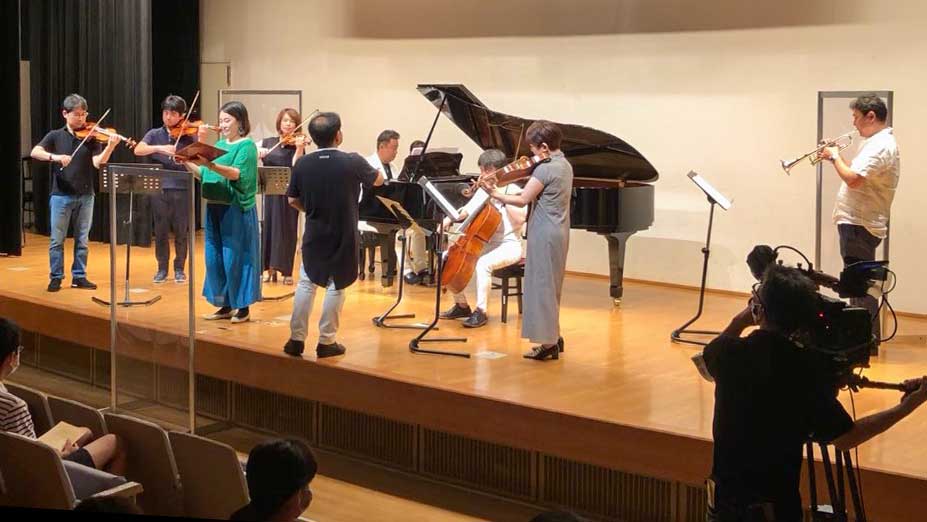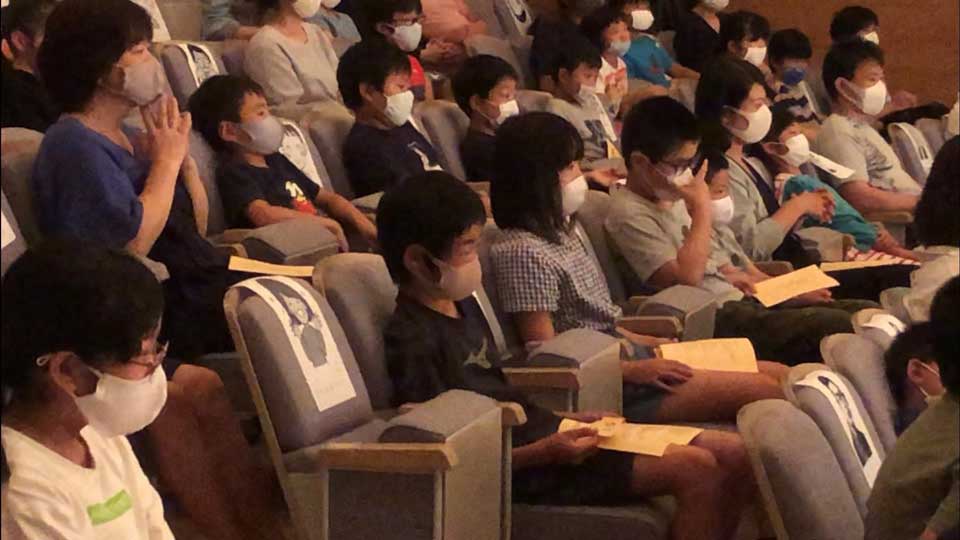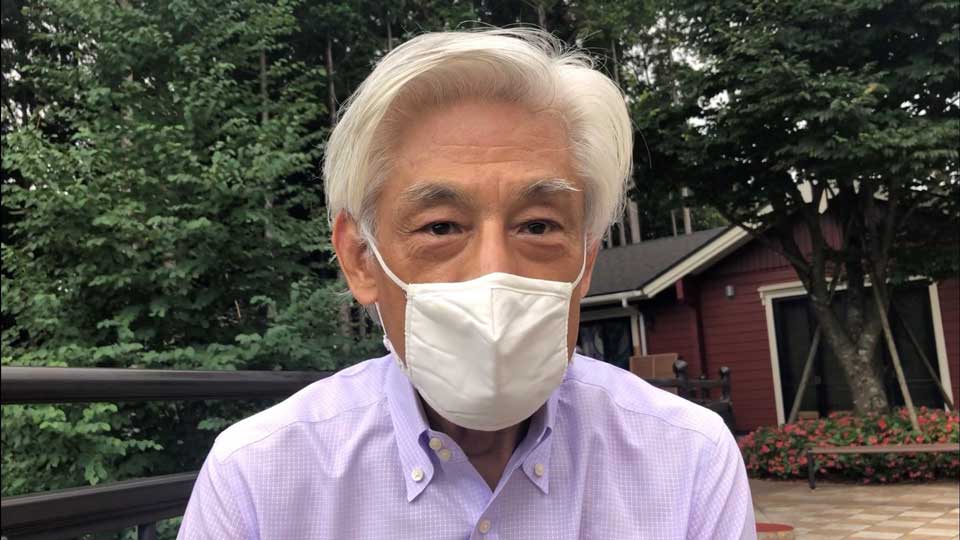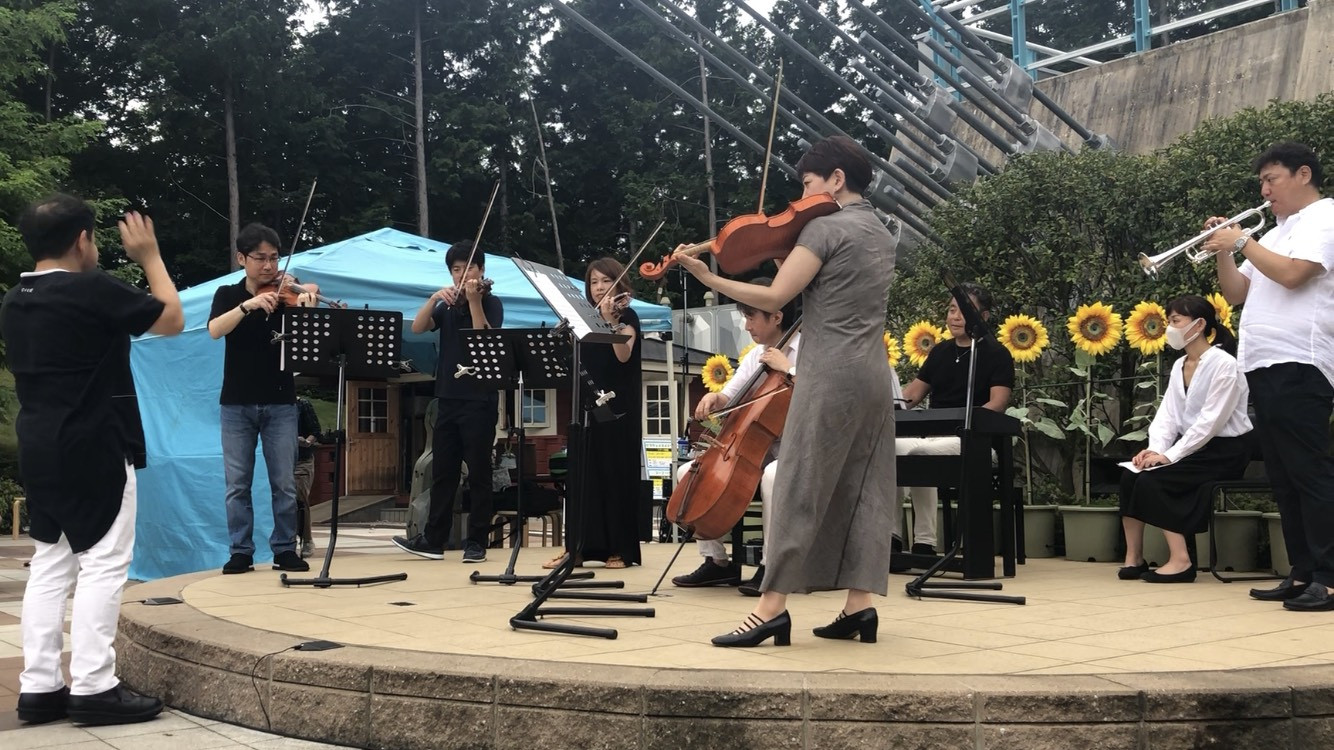Return to the stage
Nine classical musicians held two live concerts in Mishima City, Shizuoka Prefecture, on August 11, with one carefully planned for a younger audience.
One of the players was Yabe Tatsuya, a violinist and solo concertmaster with the Tokyo Metropolitan Symphony Orchestra since 1990. He has performed under noted conductors such as Ozawa Seiji and Jean Fournet.
Yabe has been part of a concert named for Ozawa every summer in Japan, but this season was canceled for the first time since 1992. His orchestra had also planned to play in Europe, but that too has been scrapped.
Yabe didn't even feel like playing this spring when concerts began to be canceled.
"I really thought hard about the current and future music industry," he said. "Some concerts have resumed gradually and that's a wonderful thing, but we don't know when we can have full audiences in the hall. Even if the authorities ease restrictions, I don't think people will feel like going to concerts anytime soon."

He talked with his musical partners and came up with the idea of playing for greatly reduced audiences. Yabe felt that sharing the same physical space means musicians and audiences can feel each other breathe and react, which is different from playing online.
The first concert was held in front of some 50 children and their families. The dozen pieces featured included Mozart's Eine kleine Nachtmusik and Rossini's William Tell Overture.
Twelve-year-old Wakazono Atsushi was in the 'crowd.' He's learning violin, but has been unable to go to lessons as usual during the pandemic.
"I took lessons online, but that's hard," he said. "It's different from learning directly. I really wanted to come hear the famous professional musicians. I was excited by the atmosphere."
Yoshida Toshiko, who brought her son, hoped the concert would have a positive influence on him. "He seems to feel some stress because of having to stay home," she said. "I hope he can experience something different and just relax."

Echoes of March 11
One of the planners of the concert was Kondo Seiichi, president of Yabe's orchestra. He was head of the Agency for Cultural Affairs when a major earthquake and tsunami hit northeast Japan in 2011. He feels there's a similar atmosphere between the disaster and the coronavirus pandemic.
Kondo believes people in Japan tend to have sympathy with others affected by disaster, or those working hard in the current situation, such as medical professionals and essential workers. He thinks that many people have a tendency to refrain from enjoyable things in sympathy.
"It's not good psychologically, and people will get more and more frustrated." he said. "They may tend to lose that sympathy with others."

In his previous role, in April 2011, Kondo said the country should encourage and support cultural and artistic activities. This time, he feels the same way.
"We are trying to find ways to do something to bring back the joy of culture and the arts, while doing our best to contain the spread of the virus," he said.
Yabe and Kondo received funding from a supplementary national budget brought in to boost the economic and cultural activities devastated by the pandemic. It will also be used to fund similar events in 25 places by the end of this fiscal year.
Power of the arts
Yabe and Kondo both strongly believe in the power of culture and the arts in times when people face real difficulties.
"Nobody knows what our new lives will look like," said Kondo. "But I'm quite sure even if technology will be more advanced, human life is not made up of efficiency, economics or material things. We must be physiologically and mentally fulfilled. After the coronavirus, culture and the arts will be even more important than before."
Watch video 01:46
As for Yabe, he senses that now is a time of change for him and how he approaches his music.
"I had two concerts in July," he said. "When I felt the applause of a live audience, I was more impressed than at any time during my 30-year career. It was the same today. The coronavirus made me rethink why I play music. Before, I concentrated on how to show the full range of my skills, but the feeling now that I want my audiences to be happy is growing. I expect it will be my life's work.
"Music itself may not be necessary to the human body, but people can enrich their lives and hearts as well as physically. It's our duty to hand down classical music that has been played for hundreds of years to future generations. Music is humanity's true treasure."

